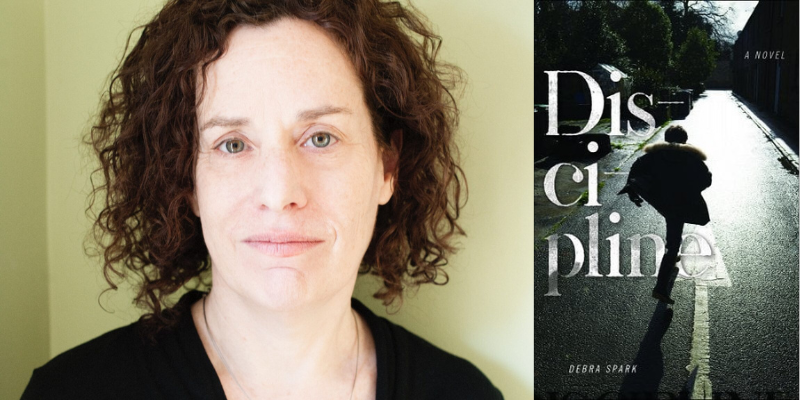
Debra Spark on Whether Art Can Truly Help People
In Conversation with Mitzi Rapkin on the First Draft Podcast
First Draft: A Dialogue of Writing is a weekly show featuring in-depth interviews with fiction, nonfiction, essay writers, and poets, highlighting the voices of writers as they discuss their work, their craft, and the literary arts. Hosted by Mitzi Rapkin, First Draft celebrates creative writing and the individuals who are dedicated to bringing their carefully chosen words to print as well as the impact writers have on the world we live in.
In this episode, Mitzi talks to Debra Spark about her new novel, Discipline.
Subscribe and download the episode, wherever you get your podcasts!
From the episode:
Mitzi Rapkin: Tell me a little bit about your interest in art as a theme. One of your main characters, Gracie, the art appraiser, had a central question in her life. The narrator says, what use is beauty. She’s thinking when people are really struggling, and there are wars or strife, or homelessness what good is beauty? And I think that was also a central question of the book.
Debra Spark: I think it’s a central question of my life. So, my twin sister has always been in anti-poverty work. She was in homelessness for forever, and now she does work for the environment. And I’m aware that I don’t do something good in that way, like in a direct way. I mean, yes, yes, yes, you can say, Oh, you’re helping people create fiction. And, you know, if you help people appreciate fiction, you know, reading fiction makes you more empathetic. And, you know, you can say all that, which I believe to be true. But I do also have the thoughts that that character does, you know, it’s like, okay, I want to be a better person, I want to improve the world, make the world a better place, and yet I’m devoted, I am devoted, as a person who writes novels, or I’m working on nonfiction now, but I’m not directly helping people, you know, I write a check to this cause and that cause. So, to have a whole life that is devoted, really to beauty as the character does, or as I would say my husband does, he’s a painter, I think it sort of puts you in a sort of interesting relationship to your own ethics. And it’s hard, at least for me, I do wonder about it. And I actually wonder about it sometimes when people start to get very spiritual in the way they talk about art, and it’s not that I don’t believe it, because I do but sometimes I think people get almost too grandiose for art. It makes me think of a very famous Solzhenitsyn speech. Do you know his Nobel speech? He talks about people saying things like, art will save us. You know, basically, art will save us and then he’s like, wait a second, you know, this isn’t a direct quote, but more or less a quote from Solzhenitsyn, he says just when in the bloodthirsty history of mankind has art ever saved anyone from anything? I mean, that’s basically his question in his Nobel Prize speech. And he does actually almost work around to say art does save people. But I think that is part of my question, you know, you look at the present moment, of course. Yeah, I don’t think art is going to get us out of the Middle East situation or, you know, solve Ukraine and Russia, which isn’t to say that the art that comes out of that isn’t important for the people who are suffering that but you know, I jump through hoops in my own mind when I’m thinking about what I’m doing.
***
Debra Spark is the award-winning author of five novels, including Unknown Caller, which was picked for Maine’s statewide summer READ ME program. She has also published two collections of short stories; and two books of essays on fiction writing called And Then Something Happened and Curious Attractions. Her book reviews, short fiction, articles, op-eds, and essays have appeared in Agni, American Scholar, AWP Writers’ Chronicle, and the Boston Globe among others. Her new novel is Discipline. She is the Zacamy Professor of English at Colby College and teaches in the MFA Program for Writers at Warren Wilson College.
First Draft: A Dialogue on Writing
First Draft: A Dialogue on Writing is a literary podcast produced and hosted by Mitzi Rapkin. Each episode features an in-depth interview with a fiction, non-fiction, essay, or poetry writer. The show is equal parts investigation into the craft of writing and conversation about the topics of an author’s work.



















